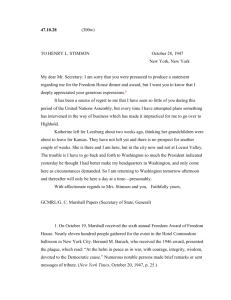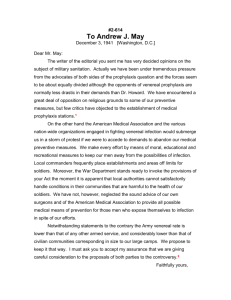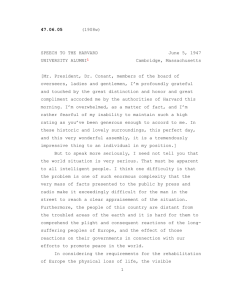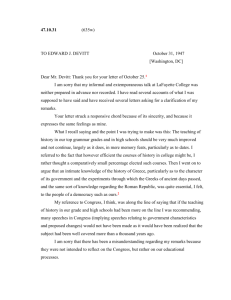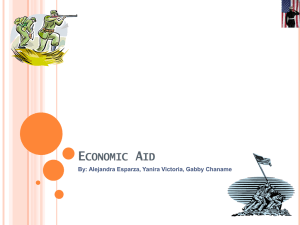D1647 [47 - George C. Marshall Foundation
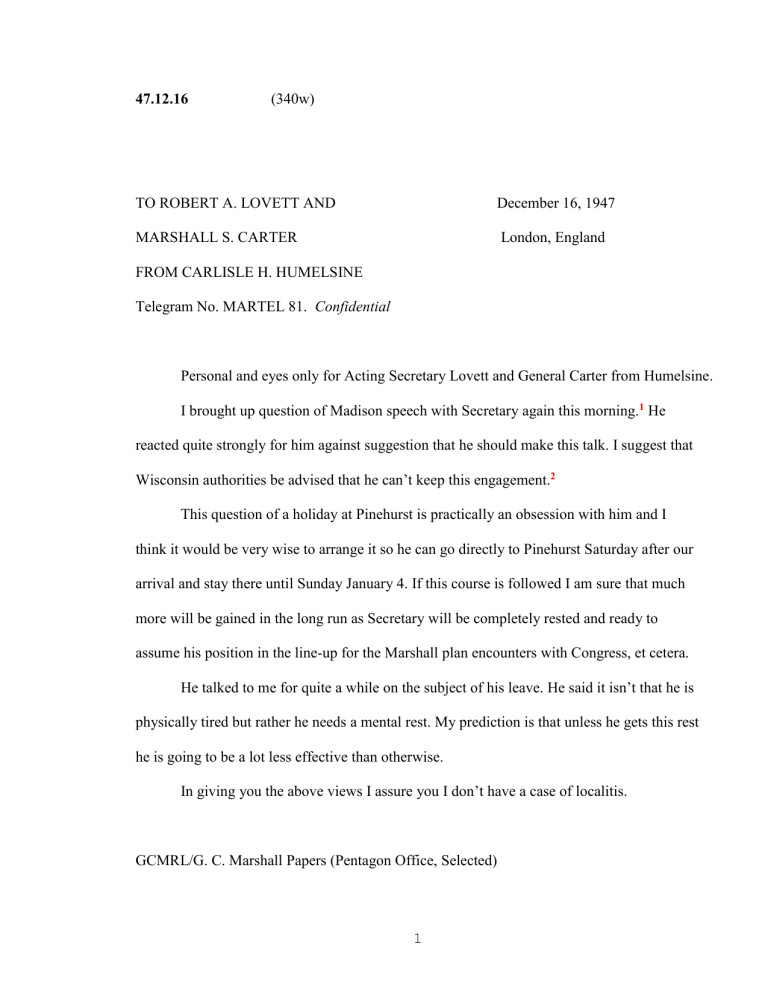
47.12.16 (340w)
TO ROBERT A. LOVETT AND
MARSHALL S. CARTER
FROM CARLISLE H. HUMELSINE
Telegram No. MARTEL 81. Confidential
December 16, 1947
London, England
Personal and eyes only for Acting Secretary Lovett and General Carter from Humelsine.
I brought up question of Madison speech with Secretary again this morning.
1 He reacted quite strongly for him against suggestion that he should make this talk. I suggest that
Wisconsin authorities be advised that he can’t keep this engagement.
2
This question of a holiday at Pinehurst is practically an obsession with him and I think it would be very wise to arrange it so he can go directly to Pinehurst Saturday after our arrival and stay there until Sunday January 4. If this course is followed I am sure that much more will be gained in the long run as Secretary will be completely rested and ready to assume his position in the line-up for the Marshall plan encounters with Congress, et cetera.
He talked to me for quite a while on the subject of his leave. He said it isn’t that he is physically tired but rather he needs a mental rest. My prediction is that unless he gets this rest he is going to be a lot less effective than otherwise.
In giving you the above views I assure you I don’t have a case of localitis.
GCMRL/G. C. Marshall Papers (Pentagon Office, Selected)
1
1. Marshall had been asked to speak at the University of Wisconsin’s commencement on May 25, 1947, but he had cancelled for reasons previously described (see pp. 000–00). He had been asked to speak on January 5 to inaugurate the year-long centennial observance of the state of Wisconsin’s admission to the Union (May 29, 1848). Marshall Carter noted in a message on December 11 that in the past few days the State Department had received indications from certain European Recovery Program supporters in Congress “that prospects of attaining ERP in any recognizable form are no (repeat no) better than fifty-fifty now.”
They believed that the “only prospect of success is to have Secretary carry the ball domestically by frequent and positive statements. The Wisconsin appearance . . . was tentatively accepted because of its timing as regards Congressional session and fact that it would reach middle west where we are noticeably weak. All here agree that domestic situation requires Secretary’s action as soon as possible upon return to the country, and that timing and location of Wisconsin appearance are ideal.” (Carter to Humelsine, December 11,
1947, Telegram No. TELMAR 66, NA/RG 59 [Central Decimal File, 111.11 Marshall,
George C./12–1047].)
2. “Bohlen is making the Wisconsin speech on January 5,” Carter noted in a
December 23 memorandum. “He is naturally unhappy but everybody else, including
Wisconsin, seems greatly pleased.” Bohlen’s talk encouraged support for the Marshall Plan.
(Carter to Marshall, December 23, 1947, GCMRL/G. C. Marshall Papers [Secretary of State,
General]; New York Times , January 6, 1948, p. 11.)
2
